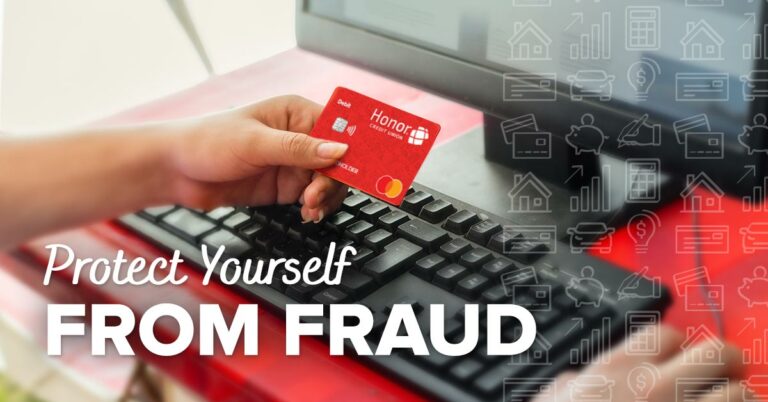During the holidays, shoppers tend to be more susceptible to scams. Fraud can happen to anyone at any time. We want to make sure you’re prepared and know what to do if fraud crosses your path. The best way to protect yourself from fraud is to know what signs to look for and what to do to protect your personal information. Here are a few tips we recommend.
Don't Trust Every Call, Text, Or Email You Receive
If you receive a call or text from an unknown number or even a number you know and trust, be on alert with the questions you’re being asked. Fraudsters are known for mimicking numbers you know and asking the right questions to access your bank account or personal information.
Always remember, Honor team members will NEVER ask you for your:
- Full debit or credit card number,
- Usernames or any account passwords
- PIN number
- Security questions with answers
If you receive a call asking you for any of this information, hang up immediately, and please let us know by calling us at 800.442.2800.
Set Up Activity Alerts For Your Credit & Debit Cards
When you’re on the go during the holidays, you’re not always stopping to check your recent transactions or double check those receipts. Setting up notifications to alert you about activity on your debit or credit card can help you catch fraud when it happens, and allow you to turn off your card before it goes any further. If you see suspicious activity on your account, lock your card down immediately by logging into the Honor Mobile App and accessing Card Control from the “More” menu.
Card Fraud Protection
Never Send Or Receive Money From An Unknown Source
If you’re asked to transfer money to someone you don’t know, chances are you’re in the middle of a scam. Remember, only accept checks or money orders from trusted sources. While this could be disguised as a trusted company on the phone or a friend on social media, look for all the signs that point to this being illegitimate and stop the conversation immediately. If something seems off, it probably is! Don’t hesitate to give us a call if something seems wrong!
Think Twice About Public Wi-Fi
Stopping for a coffee break while shopping? It might seem harmless to connect to a public Wi-Fi source to access your account for 30 seconds, but sometimes that’s all it takes for a hacker to do serious damage! Always think twice about connecting to a public internet source. Thirty seconds could turn into a long-lasting headache.
Use Multi-Factor Authentication To Double Your Login Protection
Enable multi-factor authentication to ensure that you are the only person who has access to your account. Use it for email, banking, social media, and any other service that requires logging in. If this option is available, it is highly encouraged.
Learn More: Click to read more about multi-factor authentication from the National Cyber Security Alliance
Typically, your multi-factor authentication can be enabled by using a trusted mobile device, such as your smartphone.
Use Strong Passwords
- Don’t make passwords easy to guess with personal information in your passwords, such as your name or pets’ names. This information is often easy to find on social media, making it easier for cybercriminals to hack your accounts.
- Use a long passphrase, such as a phrase from a song.
- $ymb0ls help. Incorporating numbers and symbols, such as $, %, @, and others help make your password even stronger.
- Get creative. Having different passwords for various accounts helps prevent cybercriminals from gaining access to these accounts and protects you from a breach.
More To Explore

Best Practices To Protect Yourself From Fraud
Learn what information you shouldn’t give out, how to set up card fraud alerts, how to avoid suspicious links and files, and more

How to Protect From Phishing & Scam Attacks
Phishing is a type of social engineering attack often used to obtain sensitive information or data, such as usernames, passwords, and credit card details.



